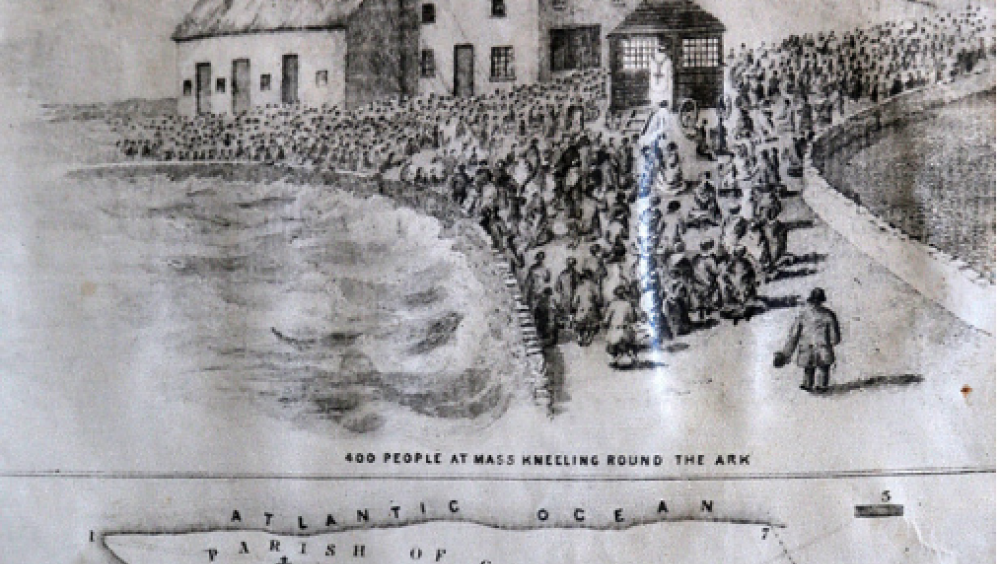The Story of the Little Ark, Kilbaha
Our story is a story of the people’s resilience to practice their faith, in face of constant oppression and threat of eviction by their local landlord and his agents, depite the penal laws being lifted. . The local priest Fr Michael Meehan, fought the unjust system for the sake of his parishioners. Such was his determination that the people would be allowed to practice their faith freely and locally, that he came up with the Little Ark concept.
Our story starts with Fr Michael Meehan who was the parish priest of Cross, Carrigaholt and Kilbaha. He did appeal to local landlord Mr Westby, in 1851 to build a church but this was declined. In June 1852 the Bishop of Killaloe visited and commented on the fact that the local landlord Mr Westby had refused a site for a chapel and school at Kilbaha. The nearest church was 5 miles away and they had no transport. Fr Meehan had secured 2 houses to say mass in but Marcus Keane the landlord’s agent evicted him. The houses remained empty and idle. He then celebrated mass at the beach in Kilbaha, under the tilted shafts of 2 farmer’s cart with a large sheet thrown over to protect the altar. However, the candles were blown out several times before the end of mass. One day walking in Victorian Kilkee in 1853, Fr Meehan saw Moore’s omnibus ( horse drawn bus) passing and a thought struck him, why not a box on wheels where-in I can say mass? A local carpenter Owen Collins, from Carrigaholt, built it to Fr Meehan’s description. The box was built on the public street as Mr. Collin’s workshop was too small to hold it. It was a wooden tally box on wheels. It was drawn to Kilbaha, 8 miles away, by horse, with a triumphant procession of all the people of the parishes joining in. The Ark cost 10pounds to build. On Sundays, the Ark was placed on the green patch at the crossroads at Kilbaha. On wet days the people went down to the beach and picked up flat stones to kneel on and keep their knees dry. The Ark was used from 1853-1857
We are a microcosym of people being oppressed to practice their faith, we link to Europe in many ways, for example, England – landlord land ownership struggle, trying to promote protestant religion, in Victorian era. Germany – Jews – not able to practice their faith freely - having to wear Star of David armbands etc. France – Huganoes – French Protestants in 16th and 17th century, fled from Catholic France, after being terrorised in their homes. Northern Ireland, struggle for Catholics in predominately Protestant Northern Ireland resulting in the Good Friday Agreement.
